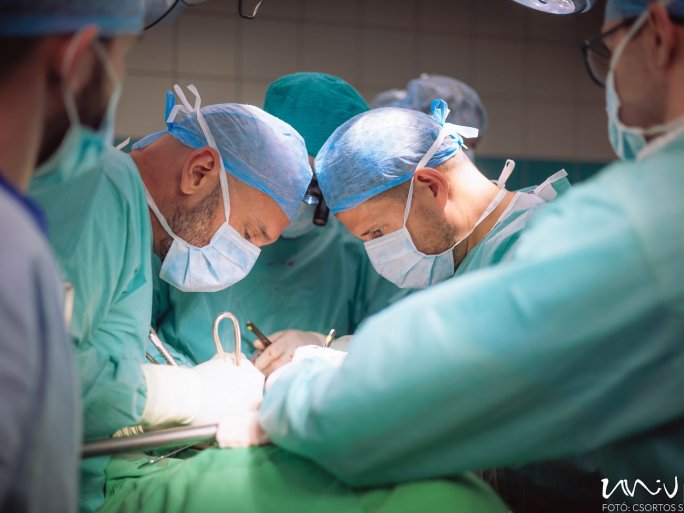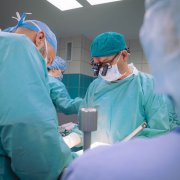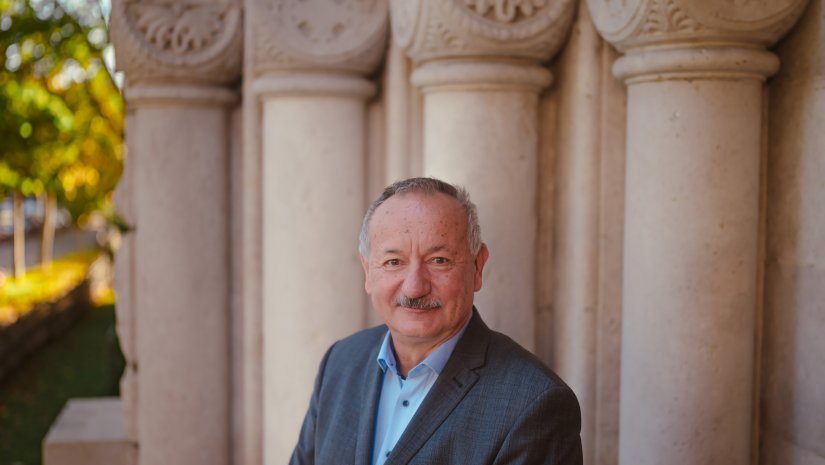At the invitation of the Human Reproduction National Laboratory, Professor Mats Brännström, head of the Department of Obstetrics and Gynaecology at the University of Gothenburg, who performed the world's first successful uterus transplant, recently came to the University of Pécs (PTE) to give a lecture on the theoretical background and practical implementation of uterus transplantation. As you know, in 2022 the University of Pécs won HUF 2.204 billion in non-reimbursable EU funding under the "Establishment and complex development of the National Laboratories" call of the Recovery and Resilience Instrument. The project, which is part of the Széchenyi Plan Plus programme, focuses on complex research into the background of infertility and on improving the effectiveness of artificial insemination procedures.
Human reproductive failure is a major medical and social problem:
In Hungary, the percentage of couples with infertility problems reaches 15% of all married couples, in other words, about 150,000 couples are struggling with childlessness.
The Government of Hungary has recognised the scale of the problem and has made significant commitments. Infertility testing has become free for women and men, and there will be no waiting lists for infertility treatment in Hungary. Extensive, innovative and integrated clinical research and technological development in the field of human reproduction, supported by cutting-edge infrastructure, are essential for even more successful infertility treatment, for increasing the effectiveness of assisted reproductive procedures and for improving demographic stability. The decades of scientific work at the University of Pécs, including both theoretical and clinical research on infertility, provide a solid basis for achieving this goal.

At the invitation of the National Laboratory of Human Reproduction, Mats Brännström, Swedish professor and head of the Department of Obstetrics and Gynaecology at the University of Gothenburg, Sweden, recently came to the University of Pécs to give a lecture on the theoretical background and practical implementation of uterus transplantation. He performed the world's first successful uterus transfer in 2012. Uterus transplantation is currently the only treatment available for women with absolute uterine infertility to have children of their own. Women with this condition have a congenital, acquired or anatomically absent or dysfunctional uterus. In the last decade, nearly 100 successful uterus transplants have been performed worldwide, resulting in 55 children. More than a third of these operations are attributed to the team led by Professor Brännström. The Swedish specialist is an expert on the subject, with scientific and clinical expertise recognised throughout the world. He has written nearly 200 scientific publications and numerous textbooks on uterus transplantation and is considered a pioneer of the technique.
In his lecture in Pécs, he presented the concept, the professional background and the clinical implementation schedule of uterus transplantation.On 1 June 2024, the National Laboratory of Human Reproduction's Research Group on Female and Male Infertility Research, under the professional leadership of Professor József Bódis,
had the opportunity to perform a live animal operation with Professor Brännström, where they could gain practical knowledge during a sheep uterus transplantation.
HRNL's team of 10 professionals and the staff of the Preclinical Research Centre.

The visit of the renowned Swedish professor to Pécs has broadened UP's international relations, and the UP Clinical Centre for Obstetrics and Gynaecology will be able to enter the international scientific scene. All this may give a new impetus to the efforts to establish the clinical practice of human uterus transplantation in Hungary, and thus provide an alternative for Hungarian families.



















